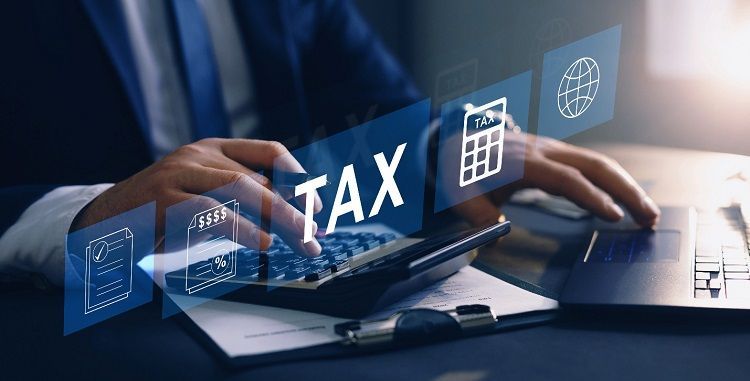Income from Other Sources: What are Its Types, Deduction and Tax Rates?
*
Disclaimer
: A Unit-Linked Insurance Plan (ULIP) comes with the dual benefit of insurance and investment, in which risks in the investment portfolio are borne by the policyholder.
Written by
:Reviewed by
Definition of Income from Other Sources
Section 56 of the Income Tax Act 1961, defines income from other sources as means earnings that cannot be included under any other heads of Income. This section also contains a list of different incomes that are to be included under this head when calculating tax dues using an income tax calculator.
A related section of the Income Tax Act is Section 57 of the Income Tax Act. This sections and its various subsections specify expenditures that are allowed as deductions for incomes earned as income from other sources.

Examples of Income from Other Sources
Section 56 of the Income Tax Act contains the complete list of various incomes that are included under the head “Income from other sources”. Below is the list of some key incomes that fall into this category:
- Dividends from shares, mutual funds, etc.
- Income from lotteries, crosswords, horse races and other types of gambling and betting
- Any amount received by an employer from employee as contribution towards provident fund, ESI, Superannuation fund, etc., if the amount is not deposited into the relevant fund by the due date.
- Interest received from bank term deposits, company deposits, etc.
- Advanced payment or capital received during negotiation or transfer of any capital asset
- Payment received from renting out machinery, plant, etc. if such income is not treated as “Income from business or profession”
- Gifts valued in excess of Rs. 50,000 except when received as gift on the occasion of marriage or
- Income received from the sale of property
Tax Rates and Rules for Income from Other Sources
Depending on the type of income, the tax treatment of income from other sources can vary. For instance, income received from lottery winnings, horse races and other types of betting are taxed at a flat rate of 30% plus applicable cess. The income tax slab of the tax payer has no impact in this case.
On the other hand, dividend income from shares and/or mutual funds are taxable as per the income tax slab rate of the individual for the applicable financial year. Similarly, there are different rules for taxation of other types of income from other sources received by an individual. In the below sections we will discuss the tax rules when gifts and income from sale of property are included under the head income from other sources.
Taxation of Gifts
As per the Income Tax Act, gifts are considered as money, property (movable or immovable), land or any other type of asset that is received without consideration i.e. without any exchange of money or for inadequate consideration i.e. with payment of an amount lower than the fair market price.
Some types of gifts are exempt from tax examples include money/assets received as inheritance through will, gifts received on the occasion of marriage, gifts received from relatives, etc. Moreover, under existing tax rules, gifts that are have a fair market price of less than Rs. 50,000 are also exempt from tax.
If a gift does not fit any of the exempted criteria, the fair market value of the gift or difference between the fair market value less actual amount paid will be the net taxable amount. This net taxable amount is added to the annual income of the taxpayer under the head income from other sources and taxed as per the applicable income tax slab rate.

Tax on Income from Sale of Property
Any property transaction, whether moveable or immoveable, will have tax levied along with stamp duty. Property transaction includes both land and property. The full stamp duty will be taxable if it's an immovable property gifted without consideration.
Now in case the property is received after consideration, and the stamp duty exceeds Rs. 50,000 or 10%, the stamp duty will be taxable as per the income in the buyer's hand. TDS on property is also applicable to these transactions.
Moveable property such as gold, securities, shares, archaeological collections, sculptures, drawings, pictures, bullion, artwork and such, when received without consideration or at a reduced price, falls under the tax slab.
Tax Exemptions Applicable to Income from Other Sources
Various income sources allow deductions at the time of filing income tax. As a taxpayer, you can also claim various expenses as deduction. Here are the deductions allowed in the case of income from other sources:
- Commission or remuneration for realising interest on securities or the dividend
- On expenses such as any repair, depreciation on plant, fixtures, machines, and insurance premiums can be deducted from the income generated.
- The standard deduction for income from family pension
- Interest on additional compensation or compensation. You can deduct up to 50% interest in such cases as per current rules.
How is Net Earnings from Income from Other Sources Computed?
Net earnings in case of income from other sources is computed using the below formula:
Net Income from Other Sources = (Gross Income from Section 56 Income Sources) – (Applicable Section 57 deductions)
However, do keep in mind that different types of income under this head will have different tax rates as per applicable sections and sub-sections of the Income Tax Act.
Frequently Asked Questions (FAQs)
ARN: Sep23/Bg/08P
www.incometaxindia.gov.in/Documents/Left%20Menu/Company-income-from-other-sources.htm
taxguru.in/income-tax/income-from-other-sources.html
www.incometaxindia.gov.in/Tutorials/18.%20Tax%20treatment%20of%20gifts.pdf
cleartax.in/s/other-income-sources
www.bajajfinservmarkets.in/markets-insights/income-tax/articles/what-is-covered-under-income-from-other-sources.html

Create wealth for your family’s future goals
With Max Life Investment Plans100% Guaranteed returns*#
Save tax up to Rs. 46,800##
Popular Searches
- 0124 648 8900(09:00 AM to 09:00 PM Monday to Saturday)
- service.helpdesk@maxlifeinsurance.comEmail
- SMS ‘LIFE’ to 5616188Message
- Let us call you back
- 1860 120 5577(9:00 AM to 6:00 PM Monday to Saturday)
- Chat with us
- Write to usPlease write to us incase of any escalation/feedback/queries.
- 011-71025900, 011-61329950(9:00 AM to 6:00 PM Monday to Saturday)
- nri.helpdesk@maxlifeinsurance.comPlease write to us incase of any escalation/feedback/queries.






